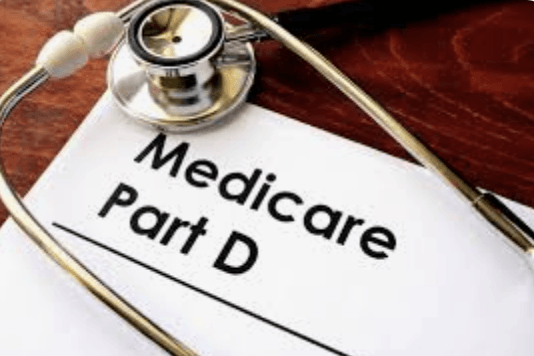
Starting in 2023 there have been some big and helpful changes to Medicare Part D, and more changes are coming.
Starting on January 1, 2023, these changes went into effect:
No Cost-Sharing for CDC-Recommended Vaccines.
Medicare Part D and Medicare Advantage can no longer require a deductible, coinsurance, or other cost-sharing requirements for vaccines that are recommended by the Centers for Disease Control and Prevention’s (CDC) Advisory Committee on Immunization Practices. Click here to see a list of CDC-recommended vaccines. This means that if you have a Medicare Part D plan and get one of these vaccines, there is no out-of-pocket cost to you.
$35 Cap on Insulin:
For those with Medicare Part B and/or Part D coverage, out-of-pocket costs for insulin is now capped at $35, and there is no deductible.
This new rule does not apply to insulin supplies. For example: if you have a disposable insulin pump, the out-of-pocket cost for the insulin will be capped at $35 each month, but you will be responsible for the cost of the pump according to your Part B or Part D coverage (if you do not have Part D coverage, you are likely responsible for paying 100% of the cost of the pump).
Starting on January 1, 2024, these changes went into effect:
Low-Income Subsidy (Extra Help) Program Expansion:
The Extra Help program used to provide different levels of benefits available to Part D enrollees with an income of less than 135% of the federal poverty level (FPL) versus those with an income between 135% and 150% of the FPL. Now, that differentiation has been eliminated so that everyone with an income of less than 150% FPL qualifies for the same program benefits:
o No Part D deductibles
o No premiums for Part D plans
o Pay no more than $4.50 out-of-pocket for generic drugs covered by the Part D plan ($11.20 for name brand drugs covered by the Part D plan)
o No Part D late enrollment penalty
To enroll in the Extra Help program, you need to apply. But, there is an exception to this- if you are enrolled in both Medicare and Medicaid (dual eligible), or you receive Social Security Income (SSI), or you qualify for a Medicare Savings Program, then you get Extra Help automatically and do not need to apply.
Elimination of 5% Coinsurance for Part D Catastrophic Coverage:
Before 2024, Part D enrollees were responsible for a 5% coinsurance once they reached the “catastrophic phase” of their coverage. Now, that rule has been eliminated so once a Part D enrollee reaches the catastrophic phase of their coverage, they have no out-of-pocket costs for their Part D drugs. The Centers for Medicare and Medicaid (CMS) estimates that this will cap enrollees’ out-of-pocket expenses at a cost between $3,300 and $3,800 per year.
In 2025, these changes will go into effect:
$2,000 Out-of-Pocket Cap:
For enrollees with Part D coverage, out-of-pocket expenses for Part D drugs will be capped at $2,000. After 2025, out-of-pocket expenses will be adjusted based on inflation. This rule does not apply to out-of-pocket expenses under Part B.
Monthly Installment Payments for Out-of-Pocket Costs:
Medicare Part D plans and Medicare Advantage plans must give enrollees the option to pay out-of-pocket expenses in monthly installments throughout the whole year. This will help to “smooth out” the expenses throughout the full year, rather than expenses varying wildly from month to month. To take advantage of this option, you will need to enroll- it will not be applied automatically.
